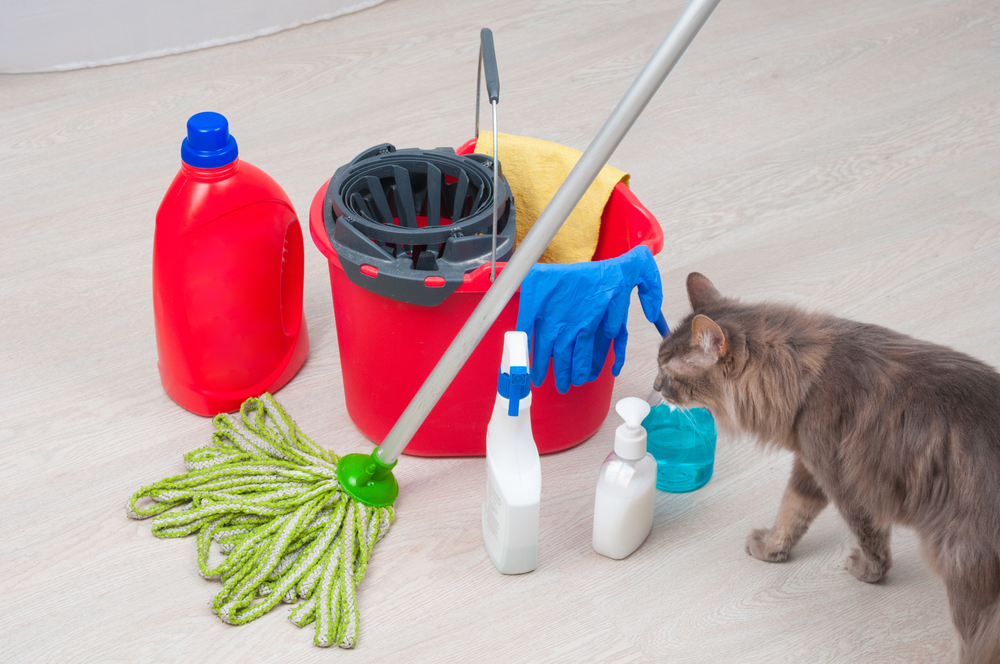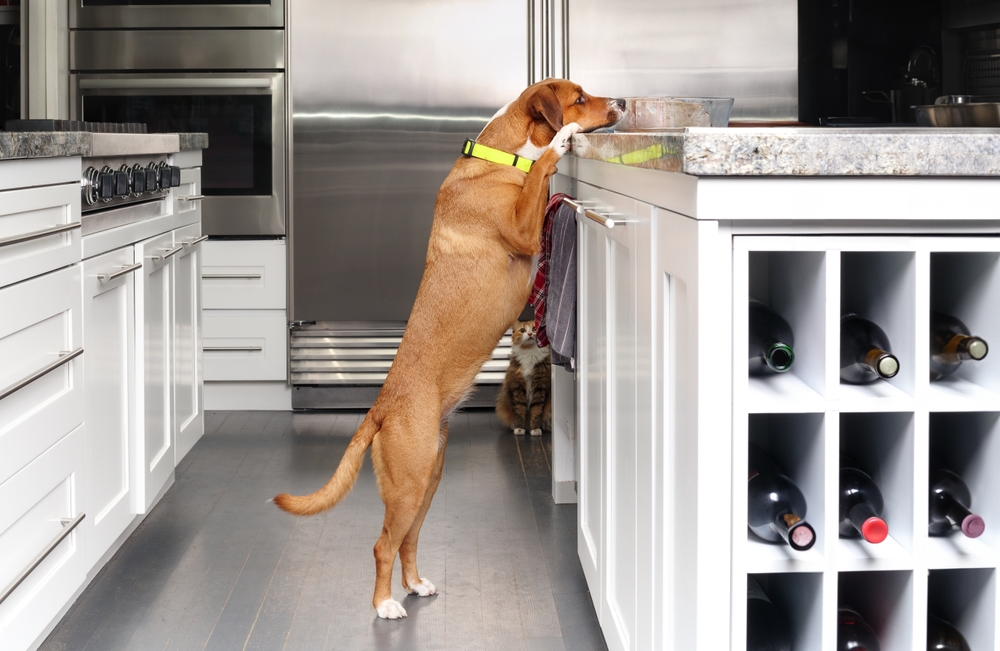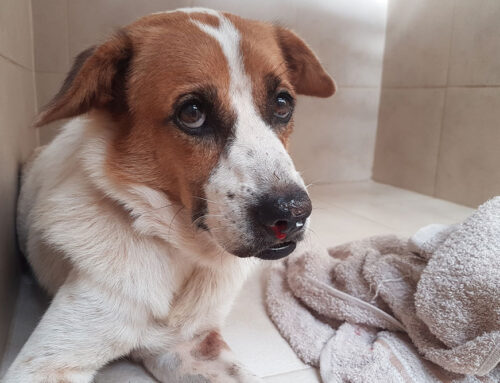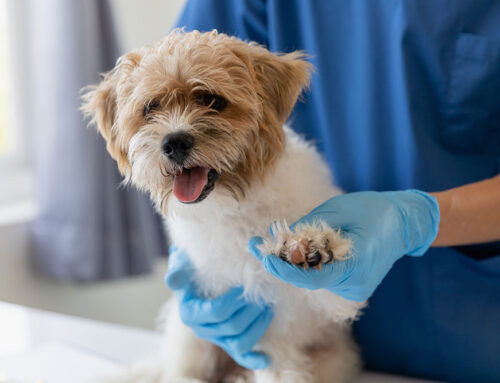Our beloved pets, whether playful pups or curious cats, bring immense joy to our lives. But their inquisitive nature can sometimes lead them astray, exposing them to hidden dangers in our everyday lives. At Bayview Animal Hospital, we understand how important your furry companion is to you, so we’ve compiled this list of surprising household toxins to help you keep your home safe and your pet healthy.
Beyond the obvious: Pet toxins in plain sight
While chocolate and antifreeze are widely recognized as toxic to pets, many other items in our homes can cause harm as well. Here are some everyday culprits:
- Medications — Over-the-counter pain relievers like ibuprofen and acetaminophen, along with human prescription medications, can be deadly for pets. In some cases, a single pill can trigger organ failure, internal bleeding, and other severe complications.
- Cleaning products — Bleach, ammonia, and other cleaning products contain harsh chemicals that can irritate or damage your pet’s skin, eyes, and digestive system.
- Plants and flowers — Many popular houseplants, like lilies (especially Tiger lilies and Stargazer lilies), tulips, and azaleas, harbor toxins that can cause kidney failure, vomiting, and, sometimes, death if ingested. Even small amounts can be harmful.
- Kitchen staples — Certain food items pose a significant threat to our pets. Grapes and raisins can cause kidney failure in dogs. Onions and garlic, which contain N-propyl disulfide, can damage red blood cells and lead to anemia. Xylitol, a sugar substitute found in sugar-free gum and baked goods, can cause hypoglycemia in dogs, leading to seizures and liver failure.
- Pest control — Rodenticides and insecticides, which are designed to eliminate unwanted critters, can also harm our furry friends. Ingesting these products can cause internal bleeding, nerve damage, and even death.
- Batteries — Leaking batteries, often found in toys and remote controls, pose a choking hazard and can cause internal injuries if swallowed. The chemicals inside can also irritate the mouth and digestive tract.
- Glow sticks — The chemicals inside glow sticks can cause stomach upset and irritation if ingested.
- Holiday decor — While festive decorations add cheer, certain types can be harmful to pets. Tinsel and ornaments pose a choking hazard, and the water in Christmas tree stands can be toxic if ingested. Lilies and poinsettias, which are commonly used in holiday decorations, are also poisonous to pets.
- Laundry products — Laundry detergent pods containing concentrated cleaning agents can be enticing to pets but can cause severe vomiting, diarrhea, and even seizures if ingested. Dryer sheets can also irritate the mouth and digestive system.
- Craft supplies — Art supplies like glue, paint, and modeling clay can be toxic if ingested. Keep these items in closed cabinets and supervise your pet while crafting.
- Garden supplies — Fertilizers, herbicides, and pesticides can be harmful to pets if ingested or absorbed through the skin. Choose pet-safe alternatives whenever possible and store these products securely.
Recognizing the signs of pet poisoning
If you suspect your pet has ingested something toxic, immediate action is crucial. Signs of pet poisoning can vary depending on the substance ingested and the amount consumed. However, some common warning signs include:
- Vomiting which may contain blood or mucus
- Diarrhea, potentially bloody or black
- Lethargy, weakness, or excessive sleepiness
- Loss of appetite or difficulty swallowing
- Abdominal pain, indicated by whining or excessive licking of the abdomen
- Difficulty breathing, panting, or gasping
- Seizures or tremors
- Disorientation, confusion, or staggering
What to do in a pet poisoning emergency
If you see your pet ingest a toxic substance or think they have been poisoned, do not hesitate:
- Act immediately — Contact Bayview Animal Hospital or the ASPCA Animal Poison Control Center at (888) 426-4435. They will provide expert guidance and advice on the best course of action.
- Gather information — If possible, identify the substance your pet ingested and take it with you to the vet. This will help determine the appropriate treatment.
- Stay calm and monitor your pet — While waiting for professional help, monitor your pet closely and keep them calm. Do not induce vomiting or give them any medication unless instructed by a veterinarian.
Prevention is key: Safeguarding your pet’s wellbeing

By taking proactive measures, you can significantly reduce the risk of pet poisoning:
- Secure medications and household cleaners — Store all medications and cleaning products in cabinets or high shelves, out of reach of your pet. Consider using childproof locks for added security.
- Choose pet-friendly plants — Opt for non-toxic plants like spider plants, African violets, or orchids to decorate your home. If you already have potentially toxic plants, relocate them to areas inaccessible to your pet.
- Be mindful of food — Avoid sharing human food with your pet, especially items known to be toxic. Keep countertops and tables clear of tempting treats.
- Dispose of pest control products properly — Store these products securely and dispose of them according to the manufacturer’s instructions.
- Keep batteries and small objects out of reach — Secure battery compartments in toys and electronics. Store small objects like coins and buttons in closed containers.
This list is not exhaustive, and new potential hazards may emerge. Always err on the side of caution and research any unfamiliar item before introducing it into your pet’s environment.
By understanding the potential dangers lurking in your home and taking preventive measures, you can create a safe and healthy haven for your furry companion. Contact Bayview Animal Hospital if you have any questions about toxic products. Our dedicated team of veterinarians and staff are committed to providing compassionate and comprehensive care, helping you and your pet enjoy a long and happy life together.







Leave A Comment